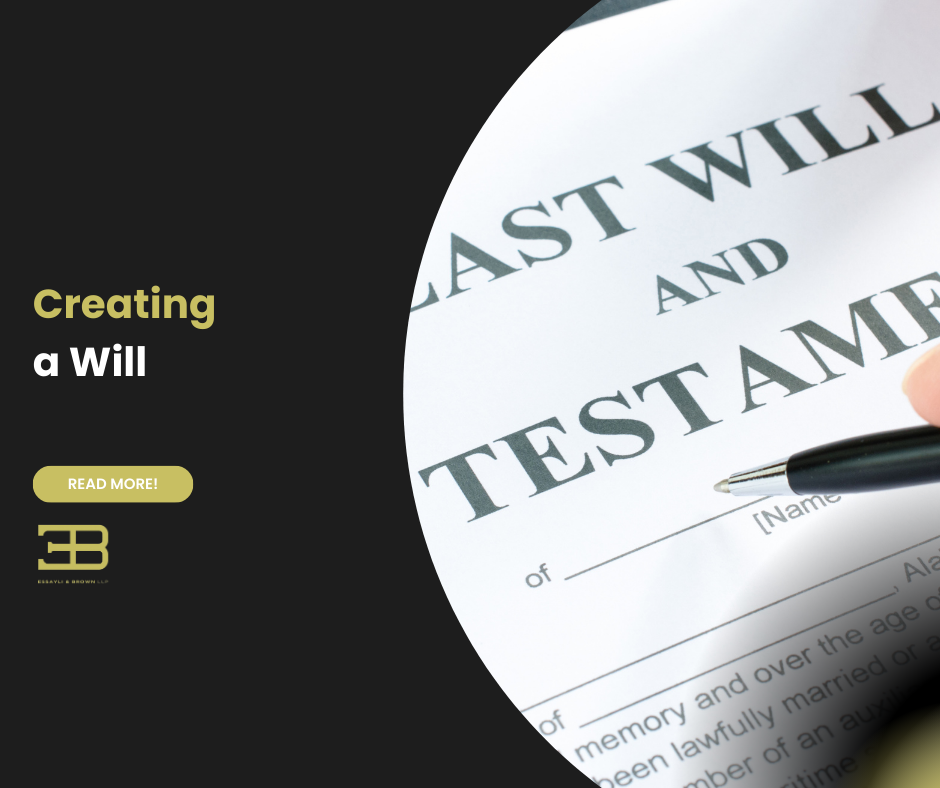Creating a Simple Will in a Time of Crisis – The Requirements, Benefits and Drawbacks
As most Californians are stuck in their homes with concerns over the current public health situation, many are contemplating their estate plans or lack thereof. In uncertain times many people will create their own Will at home. While this is a convenient and suitable way of disposing of your assets at death, there are drawbacks to doing so. There are also formal requirements that must be met for your Will to be valid.
The Drawbacks
Before describing the benefits and requirements of creating your own Will, it is important to note the drawbacks – time, cost, and publicity.
A Will does not avoid the formal court process of probate, which is court supervision of the distribution of your assets. The probate process usually takes at least a year, due in part to the fact that your executor must give notice to your creditors and allow them time to submit claims against your estate before assets can be distributed.
Probate is also public, meaning that anyone who desires can access court records and inspect your Will and the other documents your executor will be required to file with the court. Many people prefer that these matters remain private.
Probate is also costly. The attorney and executor are entitled to fees based on the size of your estate. It is important to note that the fees are based on gross probate assets, meaning that mortgages and other debts are not counted when determining the fee. The fee schedule is located in the California Probate Code (see section 10810).
Finally, a Will is usually part of a much more comprehensive estate plan. A thorough plan includes other documents that accomplish the following: allow someone to manage your finances in the event of incapacity (a Power of Attorney), make your healthcare wishes known and appoint a healthcare agent to make decisions for you in the event you can’t (an Advance Healthcare Directive), and avoid the time and expense of the probate process (a Revocable Trust and supporting documents). Your Will also does not control the disposition of all your assets, since assets with a beneficiary designation (life insurance, retirement accounts, and others) pass pursuant to those designations. A comprehensive estate plan and estate planning attorney will ensure that all of your assets pass as desired.
The Requirements
In order for a typed Will to be valid in California, it must be created by someone over the age of 18, signed and dated, and it must be witnessed by two adults who are not receiving any gifts in the Will. It is also beneficial to have your witnesses execute a self-proving affidavit in the event the witnesses will be unavailable to “prove” the will in court.
In California, you can also create a “holographic” or handwritten will, but this method is less preferable than the above method because the Will can be more easily altered or it may be harder to interpret or prove in court.
If you decide to create your own will, do not forget to name an executor and guardians for your minor children, if applicable.
The Benefits
Creating a Will at home can be the fastest way to make your wishes known. It may also be more convenient and less costly than retaining an attorney to prepare your will. If you decide to create a will at home, be sure to weigh the benefits and drawbacks of doing so. Also remember that you must comply with California law as set forth above to make the will valid.
To learn more about estate planning click here.
This article is intended for general informational purposes only. It does not constitute legal or tax advice, and no attorney client relationship is implied or formed by this article. You should always consult with a tax professional or attorney before taking any action. The information on this website is considered LEGAL ADVERTISING under applicable California law and may be considered advertising under your state’s laws and ethical rules. The responsible member for this advertising is D. Andrew Brown of Essayli & Brown LLP.

